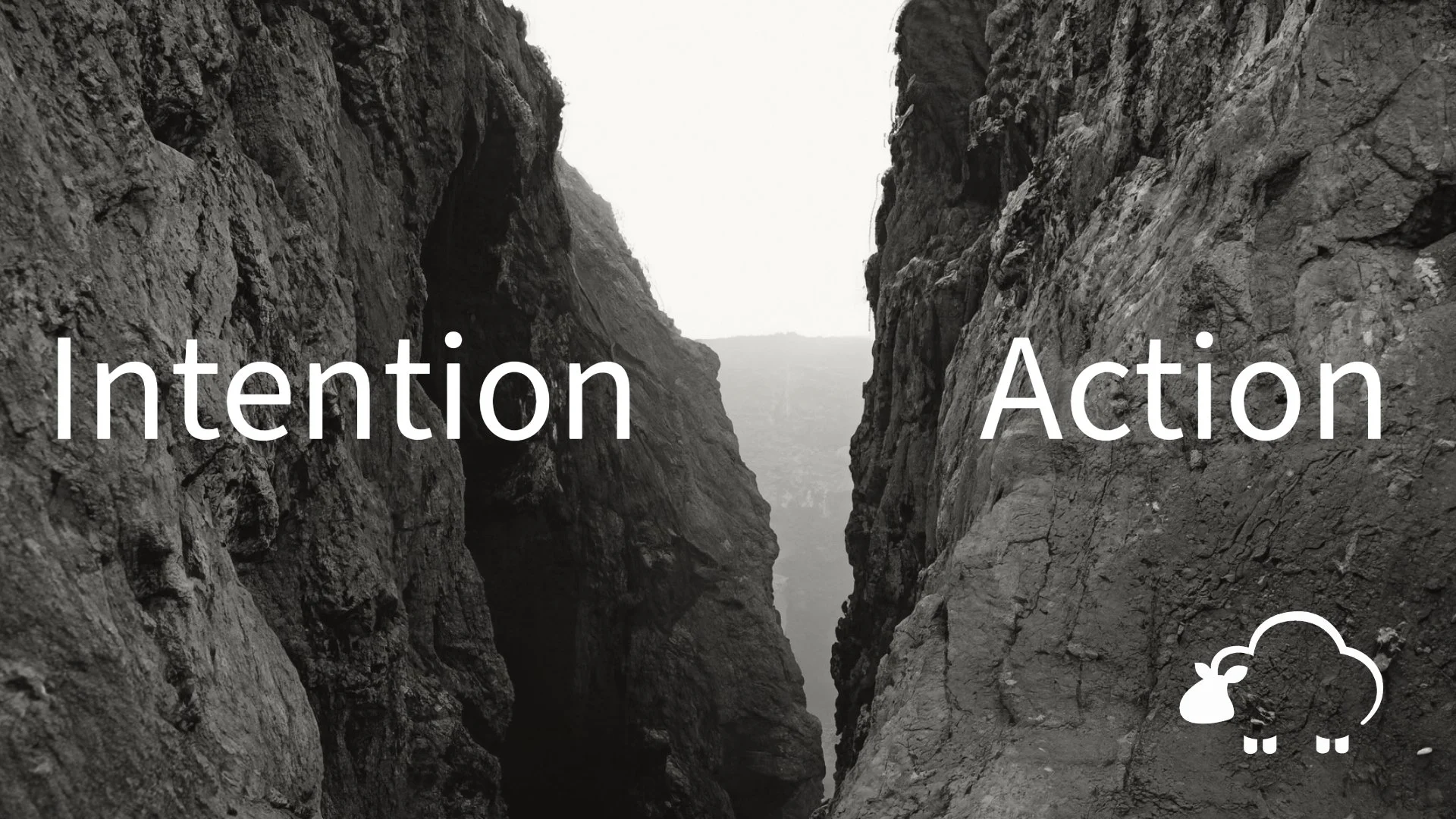“Intention and Action”
Lent Midweek Worship
March 12, 2025
The chasm between intention and action.
Luke 9:51-62
There’s a pretty big chasm between intention and action. For instance, every evening I intend to get up early the next morning and work out. That rarely actually happens. I have good intentions, but the action just isn’t there. Other things take priority—like sleep, and coffee.
But there’s another way that the chasm between intention and action is formed. When our intentions actually inform our actions, but the consequences go sideways. For instance, the criminal justice system intends to create a safer community for our citizens. People who commit offenses are arrested and tried. The intent and action are in line. But the consequence goes sideways when non-violent offenders await their trial in jail because they can’t afford bond, lose their jobs, and later may re-offend out of desperation.
It’s oversimplified, but the point is there. Sometimes, even with the best of intentions, our actions create unintended consequences. Sometimes, even with the best of intentions, the actions never even happen.
As Jesus made his way toward Jerusalem, it seems that he had several unexpected interruptions along the way. People who intended to follow him. People who wanted to be part of something bigger. People who saw potential in his ministry and thought they might be able to help. They might even benefit from his wisdom. Maybe some of his grace would rub off on them.
There were good intentions. But Jesus points out to them that they aren’t ready to commit. They aren’t ready to follow. They are torn between their responsibilities at home and the hard tasks awaiting him in Jerusalem. I wonder, had he been this far along in his ministry when he called his first disciples, if they too would have been discouraged to follow. If they would have found it too much to follow through with the expectations and actions. If their intention would have been enough to set their feet on the road alongside Jesus.
I was recently asked—and am often asked—about baptizing a child or grandchild of a member or former member. The parent or grandparent makes the connection: “I’m a member. I was confirmed here.” No, they don’t participate any longer. No, I’ve never met them. No, they just want their little one baptized. Because it’s what you do.
And my response is the same. Yes, we can do that. Yes, it has to be during worship. Yes, the parents will be making promises to be active participants in this community. Yes, I take these promises seriously. Do you?
Sometimes, they reconsider. Often, they let the conversation roll off their back, show up for a beautiful baptism, and are never seen again. Or the kids make it through confirmation, and then they’re never seen again. Or the kids graduate from high school, and the parents are never seen again. What is it that we intend, and do our actions actually align? Do the consequences enlighten or overshadow our intentions?
Even James and John find themselves on the wonky side of intentions. As Jesus and his disciples approach a town in Samaria, the townspeople inform them that they don’t want him there. They’re Jews. Enemies. Outsiders. Heading to Jerusalem—the Jewish place of worship. So, James and John—the Sons of Thunder—offer to call upon lightning to strike the town.
First of all, they don’t have that kind of power. Second, when has Jesus ever called for destruction on those who stood against him? What did James and John intend? Protection? Retribution? What kind of action would they have been able to offer? What would the consequences have been?
It’s not too long after this incident that Jesus tells the parable of the Good Samaritan. Jesus intends goodness, forgiveness, hope, and life. Jesus’ actions illuminate and offer goodness, forgiveness, hope, and life. The consequences of Jesus’ actions led him to the cross, to the grave, and into a resurrection that ensures goodness, forgiveness, hope, and life.
He didn’t insist that God align God’s plan with his intentions. Instead, Jesus aligned his intentions and his actions with God's plan—God’s love. Though it may have looked like defeat from the foot of the cross, it was absolute victory from the empty tomb. Though it may have looked like an unintended and horrible consequence as Jesus gave up his last breath, it was absolute life that walked into the upper room, bearing the scars on his hands and side.
Many will try to tell us that their intentions justify their actions and the consequences that follow. But the Jesus of the cross and empty tomb shows us that the commitment necessary to follow Christ will always be one of self-sacrifice, love, and hope. We may not be ready for that level of commitment. But we can always be ready to proclaim the Christ who died and rose so that all of creation might have life.
Pastor Tobi White
Our Saviour’s Lutheran Church
Lincoln, NE

